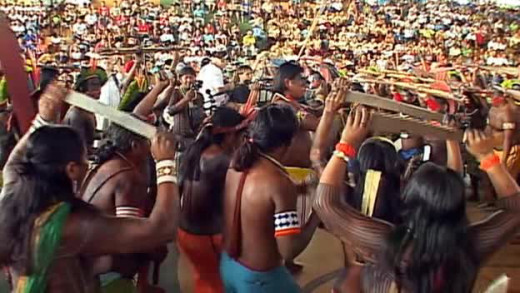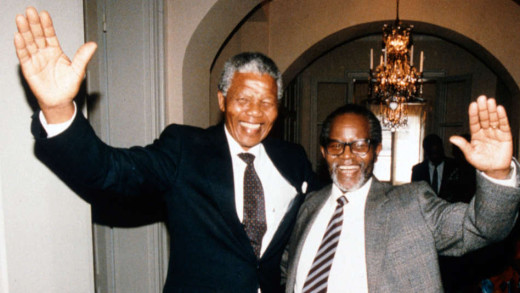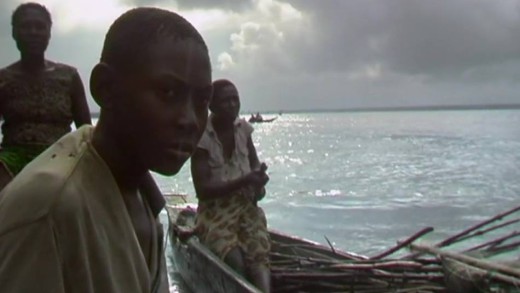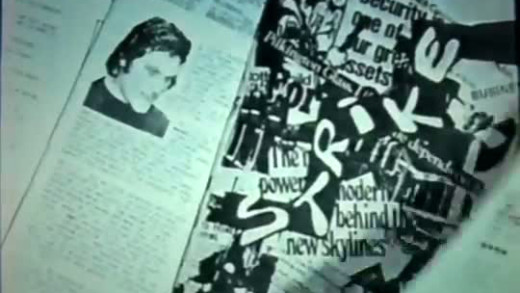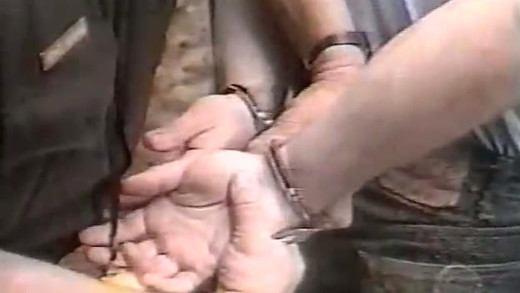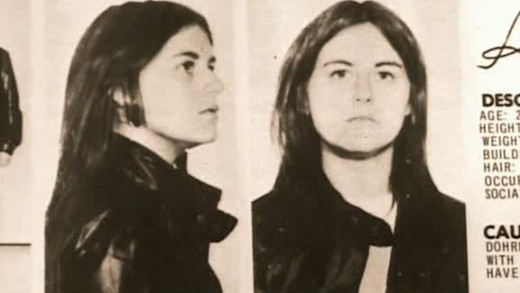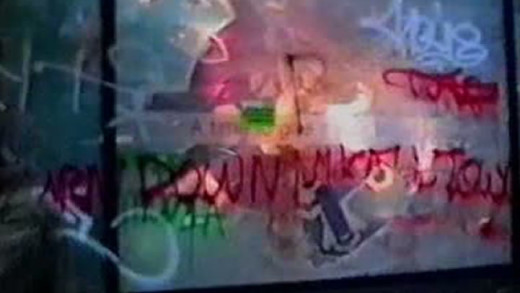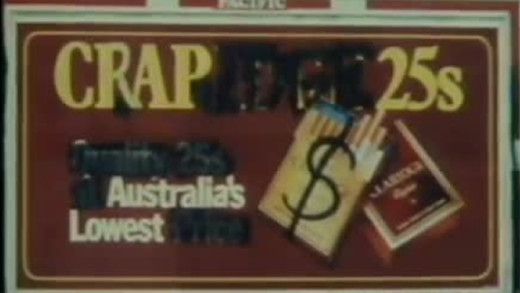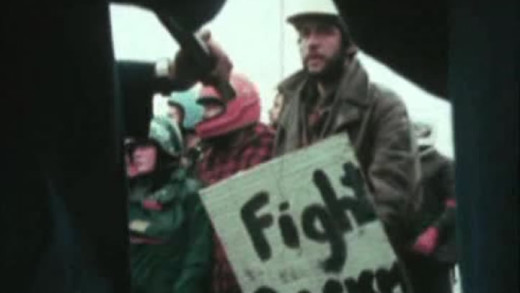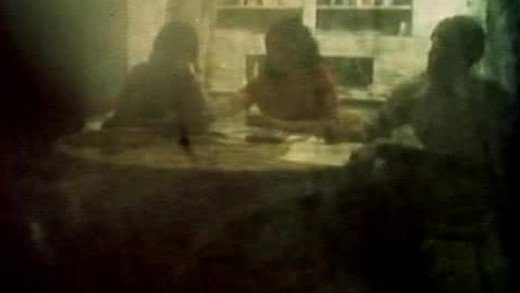In 2003, on the eve of the Iraq war, director Iara Lee embarks on a journey to better understand a world increasingly embroiled in conflict. Several years later, after travelling to five continents, Lee encounters growing numbers of people who have committed their lives to change. From Iran to Burma to Palestine and Lebanon, Cultures Of Resistance explores how art and creativity can mould with the greater culture of resistance, a part of the battle for peace and justice...
Have You Heard From Johannesburg? is series chronicling a history of the global anti-apartheid movement that opposed South Africa's entrenched apartheid regime. The movement encompassed many methods, including mass action, underground organising, armed struggle, and international mobilisation. This series focuses on the last category: the movement to mobilise worldwide citizen action to isolate the apartheid regime. Inspired by the courage and suffering of South Africa's people as they fought back against the violence and oppression of racism, foreign solidarity groups, in cooperation with exiled South Africans, took up the anti-apartheid cause. Working against the odds, in a climate of apathy or even support for the governments of Verwoerd, Vorster and Botha, campaigners challenged their governments and powerful corporations in the West to face up to the immorality of their collaboration with apartheid, revealing that the battle was more than just political. It was economic, cultural, moral, and spiritual. The combined stories have a scope that is epic in both space and time, spanning most of the globe over half a century. Beginning with the very first session of the United Nations, and ending in 1990--when, after 27 years in prison, Nelson Mandela, the best known leader of the African National Congress, toured the world, a free man.
Sweet Crude
Sweet Crude is the story of how large oil corporations such as Shell and Chevron have absolutely decimated the Niger Delta, but the people are fighting back. The film shows the human and environmental consequences of 50 years of oil extraction against an insurgency of people who, in the three years after the filmmakers met them as college students, became the young of the Movement for the Emancipation of the Niger Delta (MEND). The movement is born after series of non-violent protests, and what the corporations and colonisers don't understand is that these people will fight for their land and emancipation until the end. Sweet Crude is their story of survival and armed resistance against corrupt governments and rapacious corporate power, amongst a complicit and collusive mainstream media.
Between 1970 and 1972, a group of activists used weapons to symbolically attack property, sparked by demonstrations in London against the Vietnam War. Calling themselves the Angry Brigade, the group published a series of communiqués with the actions, explaining the choice of targets and the philosophy. Targets included the embassies of repressive regimes, police stations, army barracks, boutiques, factories, government departments and the homes of Cabinet ministers, the Attorney General and the Commissioner of the Metropolitan Police. The attacks on senior authority figures increased the desire for 'results' and consequently brought an avalanche of police raids. But from the start the police were faced with the difficulty of getting to grips with the section of society they found to be totally alien -- were they facing an organisation, or an idea?
Testify: Eco-Defence And The Politics Of Violence examines the forces that drive revolutionary environmental activism, using examples of direct-actions from the Animal Liberation Front (ALF) and the Earth Liberation Front (ELF) to illustrate tactics...
In the 1960s and 70s, the polarisation of the political situation in the United States was becoming acute with the Vietnam War abroad and civil rights at home being but the most obvious issues. For the youth political movement, the futile methods of peaceful protest led to the rise of an idealistic faction that undertook a more extreme approach to resistance. This faction, called the Weather Underground, attempted to team up with the Black Panthers to overthrow the US government—starting with street riots, escalating to bombing government targets. Thorough archival footage and interviews of the veterans of both sides, this film covers the movement, until changing times and disillusionment brought it to an end, alongside the FBI employing an illegal series of projects called COINTELPRO to hasten it...
Interspersed with shots of direct-action and interviews with participants, Big Rattle In Seattle documents the protests in Seattle against the World Trade Organisation conference in September 1999.
The War of Words Down Under documents an insight into the radical campaign of the 1980s to ban advertising and promotion of cigarettes in Australia. The result is a movement of culture-jamming activists called B.U.G.A. U.P. or Billboard Utilising Graffitists Against Unhealthy Promotions; who deface, disrupt, remove and challenge smoking promotions and advertising wherever it appears—in shopping centres, sports fields, billboards, etc. The movement starts in inner-city Sydney in October 1979, later spreading to Melbourne, Hobart, Adelaide and Perth; with many of the members coming from professional backgrounds, including doctors and health workers. This film shows how direct-action can provoke and achieve social and political change, albeit a slow process, with success for this movement coming almost a decade later...
Patu!
In 1981, the New Zealand government invited the South African rugby team to tour New Zealand. This effectively split the country in half as the rugby tour was seen by some as endorsement of South Africa's apartheid regime. Patu! recounts the mass civil disobedience that took place throughout New Zealand during the winter of 1981, in protest against the South African rugby tour. Sports grounds and suburban streets became battlefields as the film recounts visceral images of massive protest actions met with police brutality. Patu! is a record of heroism, and for many young people taking to the streets, it was their 1968. Māori and Pākehā, children and grandparents, gang members and clergymen—all in a moment of rare consensus, stood together to affirm shared values.
Underground is a film about the Weather Underground Organisation—a group founded as a militant faction of the civil rights and anti-war movement of the 1960s and 1970s. The film combines interviews with members of the group after they went underground who explain how they became radicalised amongst the political happenings in the United States at the time, as well as the revolutionary struggles in Cuba, Russia and China, and the history of struggles over Native American rights and labour issues. Also detailed is the group's analysis of American society, addressing those who have inspired them, and further explaining the reasons behind their militancy, while also introducing the issue of tactics. We see the use of property destruction as a way to bring about change and destabilise the current political order. Underground takes an intimate look at the inner workings of the Weather Underground and their strong internal collective identity, providing a record of how a bunch of middle-class Americans became self-styled militant revolutionaries, raising questions not only about the merits of their struggle, but also about past and future radical actions.
